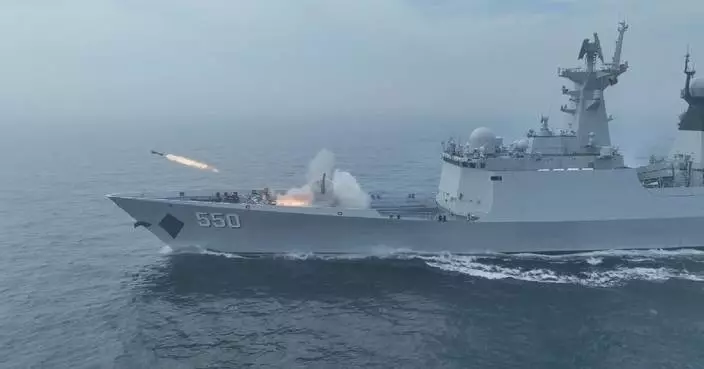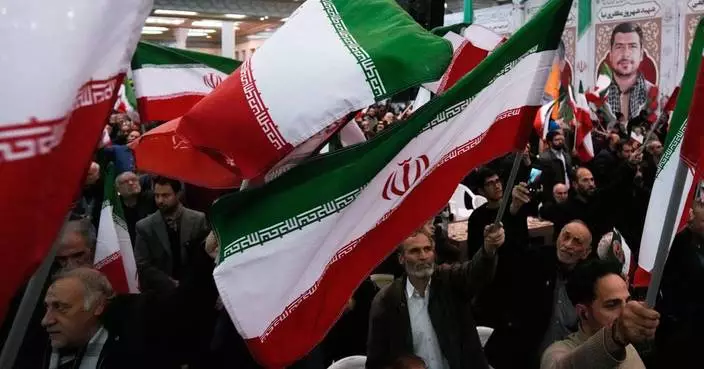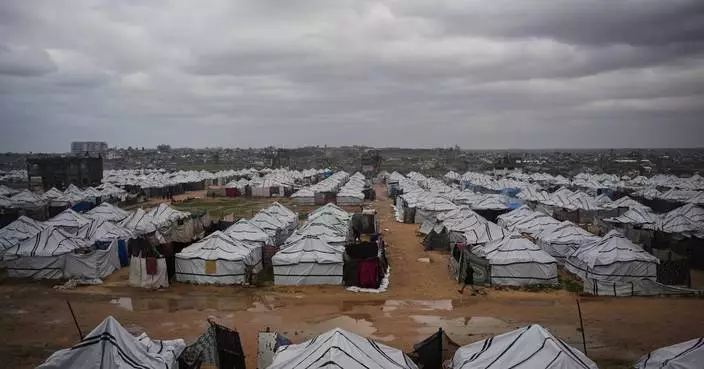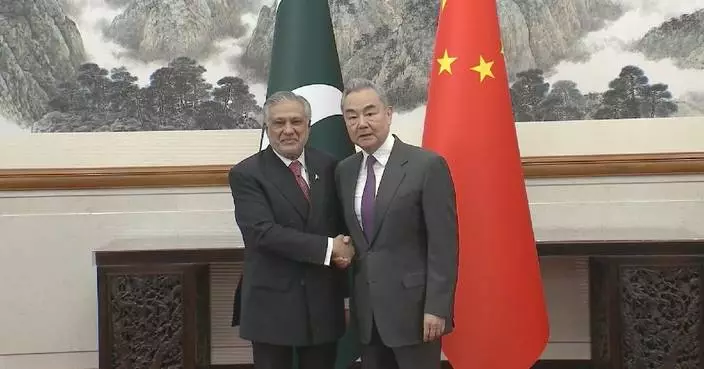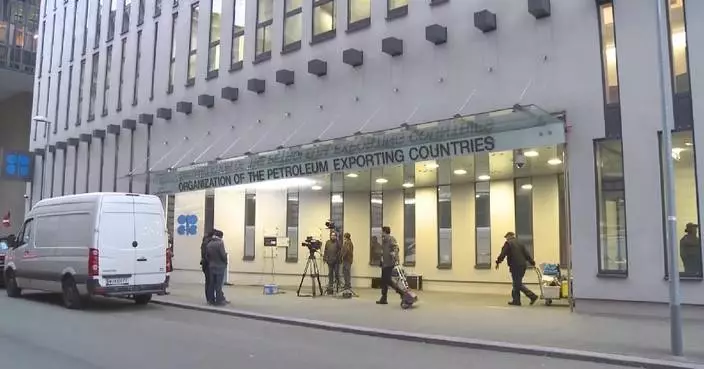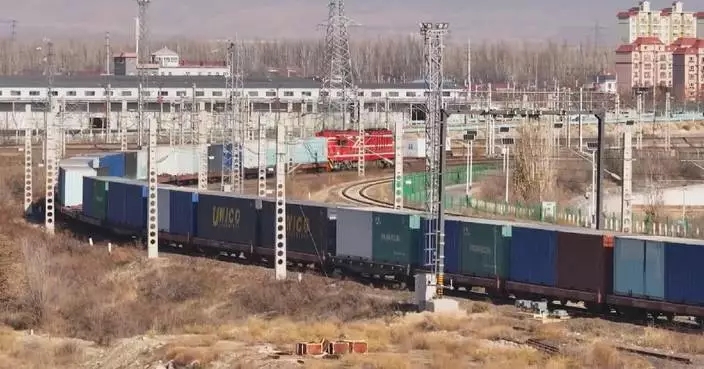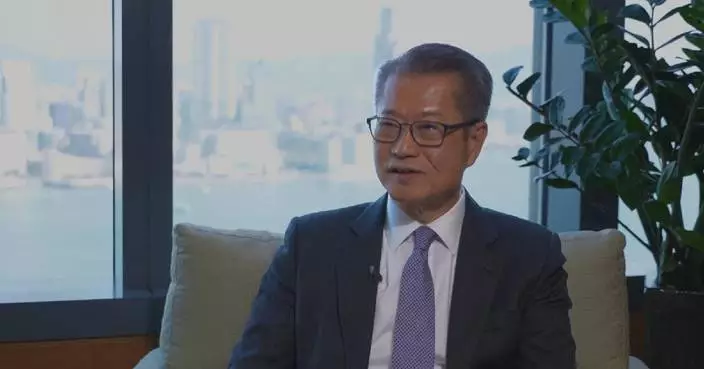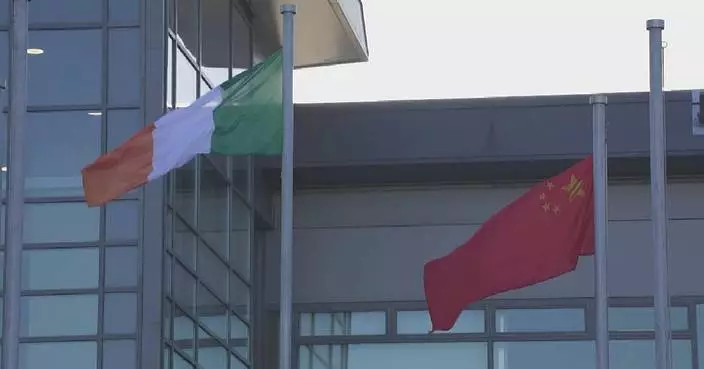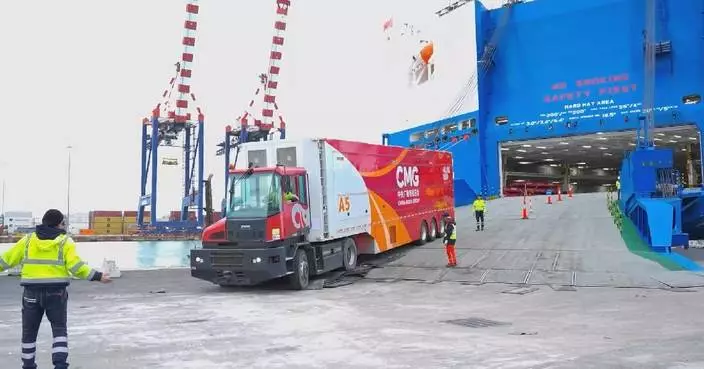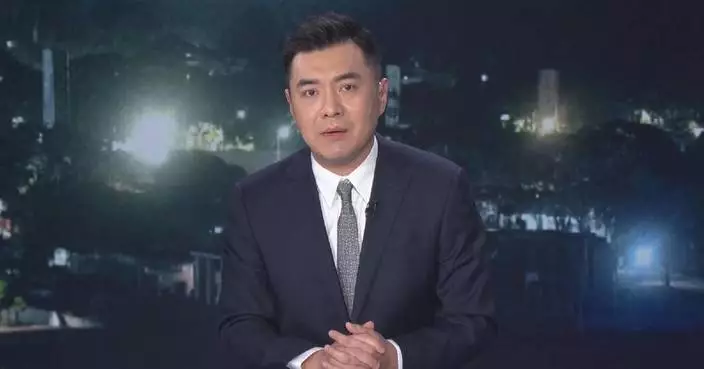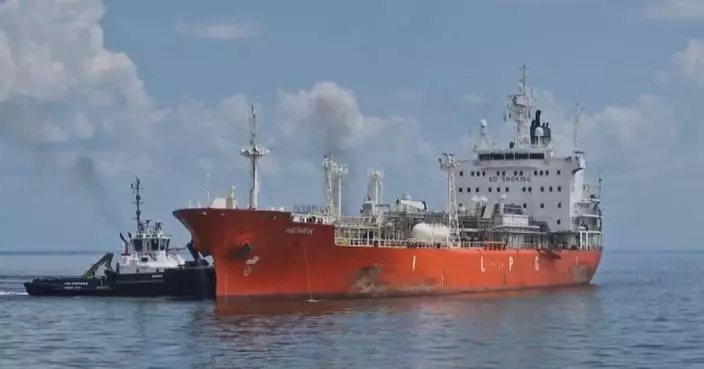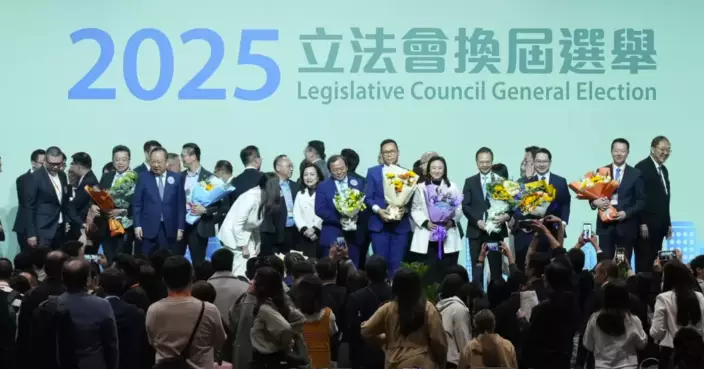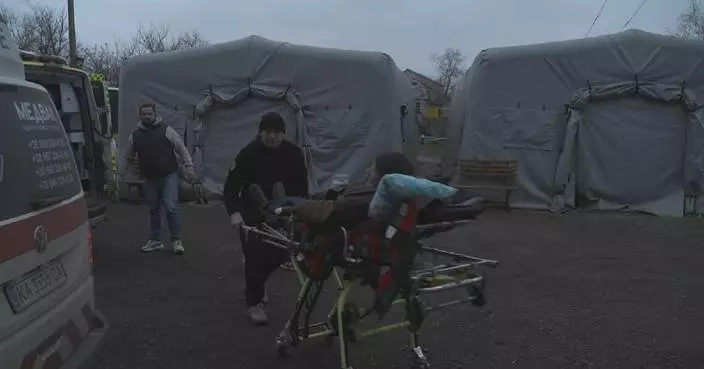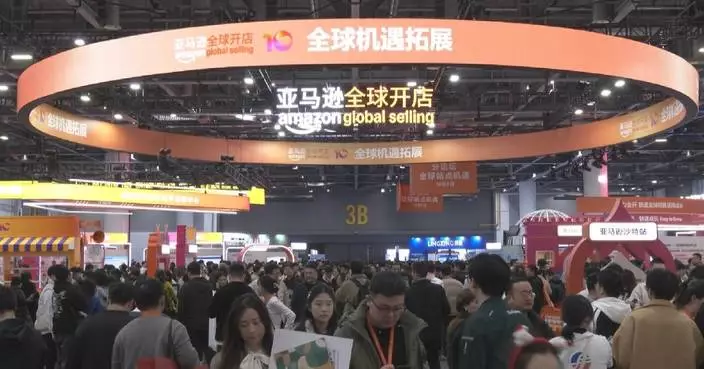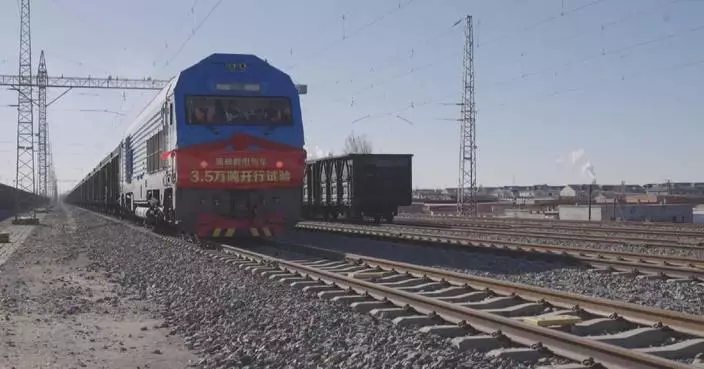Feature · News
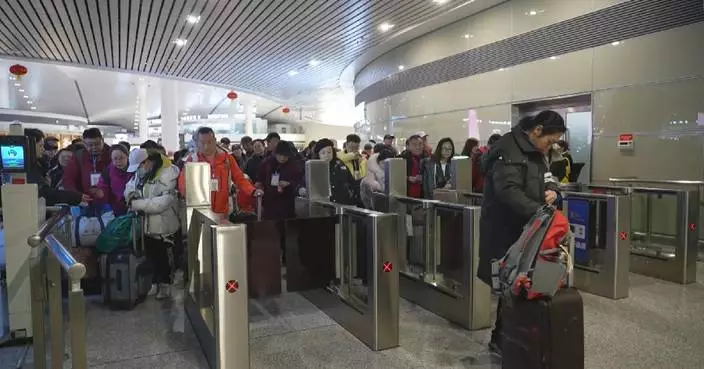
Railways handle record passenger trips in 2025
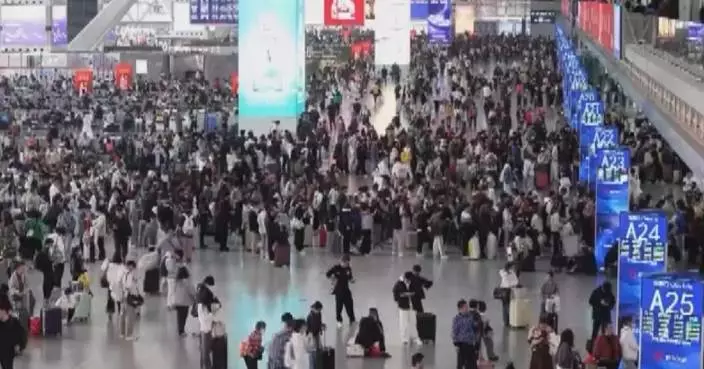
China's daily passenger trips up nearly 20 pct during New Year holiday
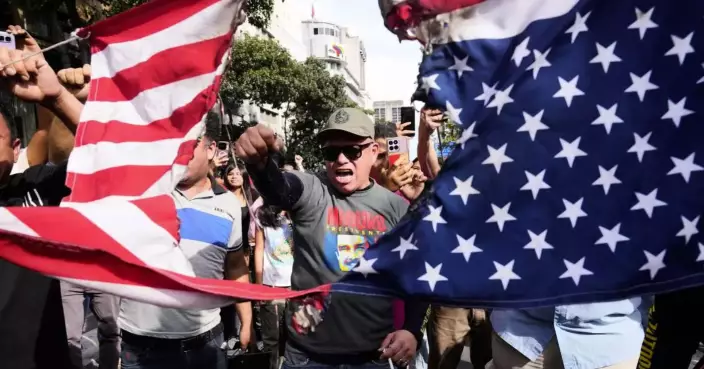
Photos show people reacting to the US capture of Venezuelan President Nicolas Maduro

Photos of Venezuela the day after US forces captured President Nicolás Maduro

US cannot legitimize operation against Venezuela: Chinese scholar

South Koreans hope president’s first visit to China will enhance exchanges
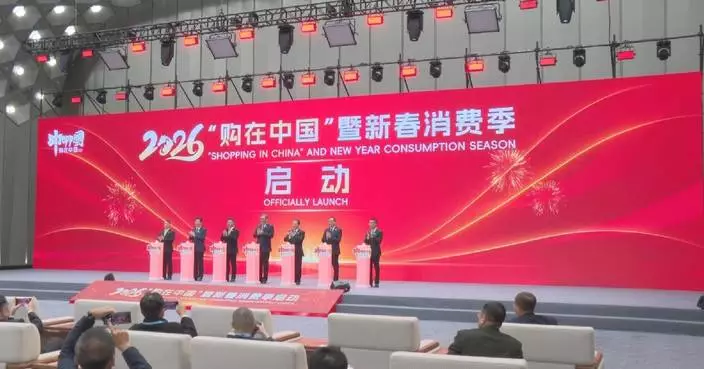
2026 "Shopping in China" campaign to focus on consumption on goods, services

Supercomputing sparks AI innovation
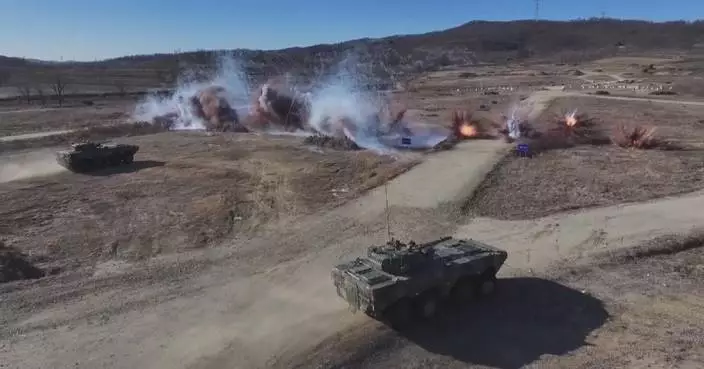
PLA Army, Navy, Air Force start annual training for 2026
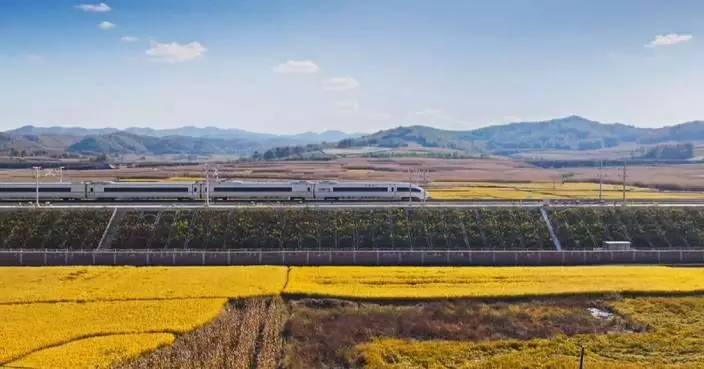
China aims to build world-class railway network by 2030

Decision to switch Africa Cup to 4-year cycle rankles

Berlin power outage affecting 45,000 homes blamed on ‘politically motivated’ attack
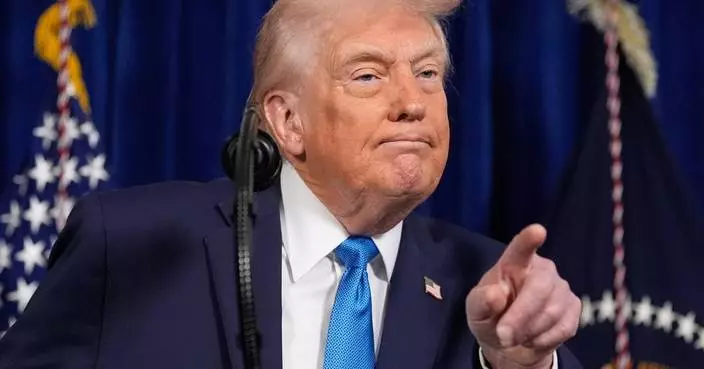
How the Monroe Doctrine factors into US arrest of Venezuela's Nicolás Maduro
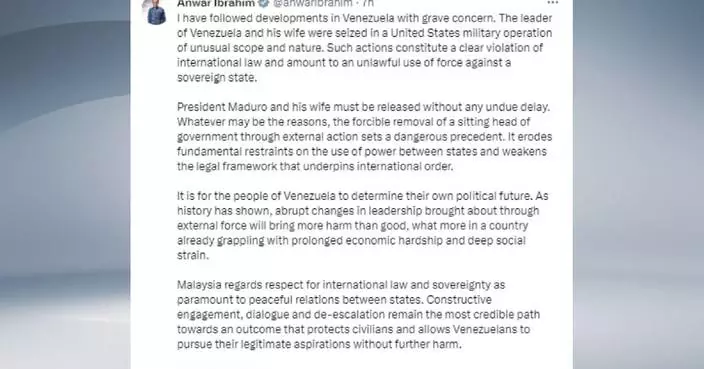
Malaysian PM, German Vice Chancellor express concern following U.S. attack on Venezuela

Global Youth Multicultural Forum Highlights Xizang Culture in Singapore and Malaysia
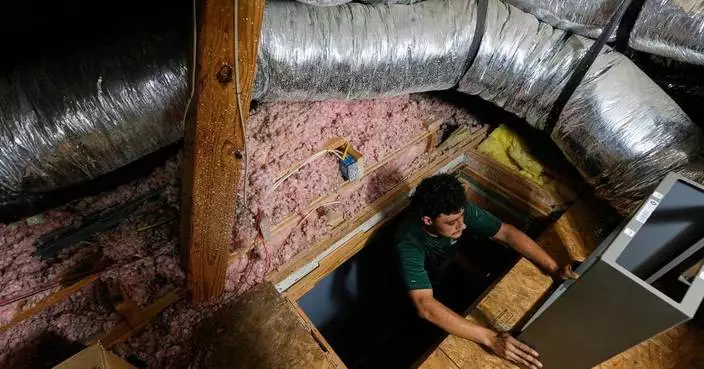
Why home maintenance deserves a spot in the annual health and budget plans
2026 "Shopping in China" campaign to focus on consumption on goods, services
Supercomputing sparks AI innovation
PLA Army, Navy, Air Force start annual training for 2026
China aims to build world-class railway network by 2030
Railways handle record passenger trips in 2025
China's daily passenger trips up nearly 20 pct during New Year holiday

Photos show people reacting to the US capture of Venezuelan President Nicolas Maduro

Photos of Venezuela the day after US forces captured President Nicolás Maduro
US cannot legitimize operation against Venezuela: Chinese scholar
South Koreans hope president’s first visit to China will enhance exchanges

Decision to switch Africa Cup to 4-year cycle rankles

Berlin power outage affecting 45,000 homes blamed on ‘politically motivated’ attack

How the Monroe Doctrine factors into US arrest of Venezuela's Nicolás Maduro
Malaysian PM, German Vice Chancellor express concern following U.S. attack on Venezuela

Global Youth Multicultural Forum Highlights Xizang Culture in Singapore and Malaysia

Why home maintenance deserves a spot in the annual health and budget plans
Feature·Bloggers

The Most Laughable Lie of the New Year: Jimmy Lai's "Grave Illness" Falls Apart Under Five Hard Facts

【What Say You?】Black Riots “comrades” Thought Ukraine Was Another “Resistance”—Then the Contract Hit

【Bastille Commentary】Green Nails? The Lie No Lawyer Would Touch

【What Say You?】How Jimmy Lai's Right-Hand Man Ran a Corporate Shakedown Operation

【Deep Blue】Trump's "Empire Strikes Back" Gambit: A Long Shot at Best

【What Say You?】Unfinished business With the “anti-Hong Kong triangle”?
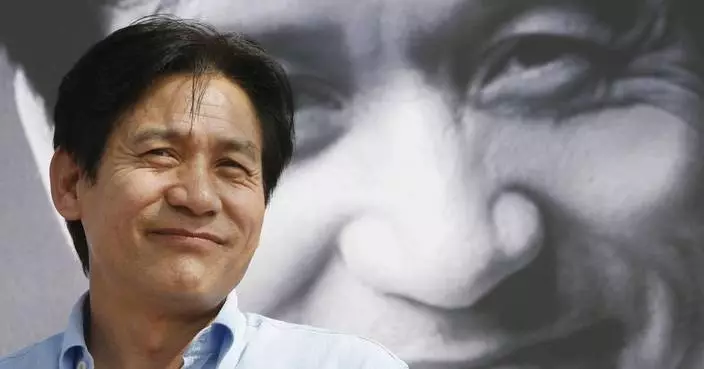
South Korean movie star Ahn Sung-ki, dubbed 'The Nation's Actor,' dies at 74
- Paris court to rule in case involving alleged cyberbullying of Brigitte Macron
- Guinea's junta leader is confirmed president-elect after first vote since a 2021 coup
- The top photos of the day by AP's photojournalists
- US capture of Maduro divides a changed region, thrilling Trump's allies and threatening his foes
- Finland's battle against fake news starts in preschool classrooms
- Trial begins for officer accused of failing to protect children during Uvalde school shooting
- Rubio says US will press change in Venezuela with oil embargo, while Trump insists 'we're in charge'
- That's some pricey fish: A glimpse into Japan's New Year's tuna auction
- After Maduro, who's next? Trump spurs speculation about his plans for Greenland, Cuba and Colombia

China's stock market demonstrates strong performance with multiple new records in 2025
- Venezuelans rally in Caracas demanding Maduro's return
- China's first astronaut CAVES training concludes in mountainous area
- Key business districts see growth in customer traffic, sales during New Year holiday
- Chinese foreign minister holds strategic talks with visiting Pakistani counterpart
- China's bulk commodity price index up for eight consecutive months
- China always opposes imposing one country's will on another: foreign minister
- CMG broadcast vehicles arrive in Italy for 2026 Winter Olympics coverage
- Chinese vice premier calls for closer China-Pakistan community with shared future
- HK financial secretary hails investor confidence amid IPO market boom in 2025

Hong Kong to host 2026 INTERPOL General Assembly
- Aptiv Powers Intelligent Edge Applications From Automotive to Robotics at CES 2026
- Agoda Reveals Growing Interest for Year-End Domestic Travel with Kuala Lumpur at the Forefront in 2025
- Samsung Presents 'Your Companion to AI Living' at The First Look during CES 2026
- Manulife Hong Kong Launches Genesis Centurion Insurance Plan and Prestige Achiever Insurance Plan
- AS Watson Marks 185 Years of Caring: Surpasses 10,000 Smiles for Children With Cleft Lips
- From Zero to Everywhere: VinFast Turned Electric Cars into Daily Life in the Philippines
- Gaw Capital Partners and GFH Partners Form JV to Develop UAE Industrial and Logistics Development Platform
- Samsung Unveils World's First 130-Inch Micro RGB TV Featuring Next-Generation Color and Bold New Design
- Amorepacific Showcases Innovative Technologies at CES 2026

What to expect from CES 2026, the annual show of all things tech?
- Driving instructors teach students to dodge danger on Zimbabwe roads
- Why ordering takeout or calling the dog walker might lead to a happier relationship
- Big Tech's fast-expanding plans for data centers are running into stiff community opposition
- Tesla loses title as world's biggest electric vehicle maker as sales fall for second year in a row
- If someone's always late, is it time blindness, or are they just being rude?
- Flu is rising rapidly, driven by a new variant. Here's what to know
- Meta buys startup Manus in latest move to advance its artificial intelligence efforts
- The year's first meteor shower and supermoon clash in January skies
- What's inside Mexico's Popocatépetl volcano? Scientists obtain first 3D images

Photos from the Critics Choice Awards
- What to Stream: Kid Laroi, 'The Pitt' and 'Tron: Ares'
- Photos show people in Lebanon enjoying winter weather on the slopes
- Leonardo DiCaprio on the importance of creating cinema over content at Palm Springs Film Festival
- Hollywood starts 2026 with 'Avatar: Fire and Ash' No. 1, as James Cameron's sci-fi epic crosses $1B
- What to know about Carnival season, Louisiana's biggest celebration
- BTS announces March comeback date, putting an end to a nearly four-year hiatus
- Country singer Zach Bryan has married Samantha Leonard
- Broadway director Alex Timbers achieves a rare feat with 4 shows running simultaneously
- Rain soaks Rose Parade in California and snow squalls hit Midwest and Northeast on first day of 2026

Root and Head's batting mastery highlights Day 2 of 5th Ashes test
- Ravens have a long offseason to think about where to go next after stunning loss to Steelers
- Czechia beats Canada 6-4 in world junior hockey to set up all-European final with Sweden
- Rodgers and Steelers win AFC North, beating Ravens 26-24 after Loop misses kick at buzzer
- Gauff clarifies comments on American tennis fans, loses to Bouzas Maneiro
- Luka Doncic scores 36 as Lakers rally past Grizzlies, 120-114
- No. 1 Indiana starts post-Mendoza era by adding former TCU quarterback, new receiver, AP source says
- Top photos from Week 18 of the NFL season
- Steelers, Panthers, Jaguars secure division titles. Broncos clinch AFC's No. 1 seed
- Texans win 38-30 over Colts, clinch No. 5 seed in AFC playoffs

December 2025: Unusually Warm and Dry Weather Records Set in Hong Kong
- Public Voting Now Open for Family Resilience Series: Parent-Child FUNtastic Free Verse Challenge!
- Tai Po Civic Centre Holds Open Day to Showcase New Facilities and Youth Arts Programs on January 10
- Land Registry reports December 2025: Sales up 26.4%, total consideration reaches $65 billion
- MDACS Achieves ISO 9001:2015 Certification, Paving Way for Hong Kong's Medical Products Regulation Centre
- Hong Kong Flower Show 2026: Student Drawing Competition Open for Entries Until February 3
- Polish Theatre Premieres Award-Winning Songs of Lear in Hong Kong This February
- Co-owners fined $230,820 for ignoring removal order on unauthorized building structures in Yuen Long
- Hong Kong Launches Dog Vaccination Campaign at Fishing Ports to Combat Rabies
- No New Chikungunya Fever Cases Reported in Hong Kong, Mosquito Control Measures Intensified
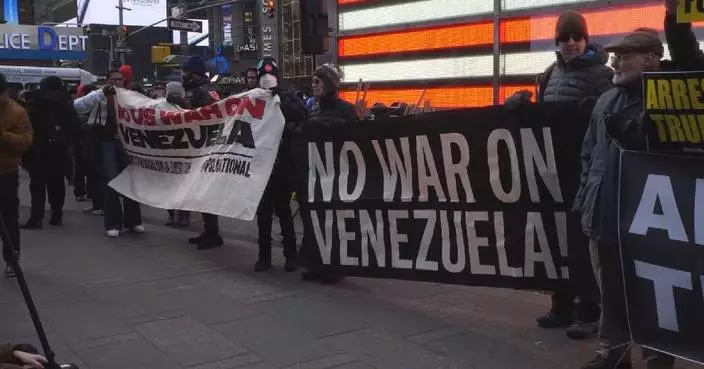
Demonstrators rally in US cities over military action in Venezuela
- Russia claims control over new settlement while Ukraine says it destroys more Russian weapons
- Venezuela's acting president invites U.S. government to work toward cooperative agenda
- U.S. move against Venezuela sparks condemnation, concerns worldwide
- Venezuelans queue for essentials following US attack as shortages loom
- US strikes on Venezuela draw international condemnation
- Venezuelan acting president urges sovereignty defense against US takeover threat
- Caracas resident voices fear as US strikes spark uncertainty in Venezuela
- Observers say Takaichi's remarks prepare Japan for war
- Iran, LatAm bloc condemn U.S. attack on Venezuela
Category · News

South Korean movie star Ahn Sung-ki, dubbed 'The Nation's Actor,' dies at 74

Root and Head's batting mastery highlights Day 2 of 5th Ashes test

December 2025: Unusually Warm and Dry Weather Records Set in Hong Kong

China's stock market demonstrates strong performance with multiple new records in 2025

Hong Kong to host 2026 INTERPOL General Assembly

Ravens have a long offseason to think about where to go next after stunning loss to Steelers

Venezuelans rally in Caracas demanding Maduro's return

Public Voting Now Open for Family Resilience Series: Parent-Child FUNtastic Free Verse Challenge!

Tai Po Civic Centre Holds Open Day to Showcase New Facilities and Youth Arts Programs on January 10

Land Registry reports December 2025: Sales up 26.4%, total consideration reaches $65 billion
Demonstrators rally in US cities over military action in Venezuela

MDACS Achieves ISO 9001:2015 Certification, Paving Way for Hong Kong's Medical Products Regulation Centre

Czechia beats Canada 6-4 in world junior hockey to set up all-European final with Sweden

Rodgers and Steelers win AFC North, beating Ravens 26-24 after Loop misses kick at buzzer

Photos from the Critics Choice Awards
Russia claims control over new settlement while Ukraine says it destroys more Russian weapons

Gauff clarifies comments on American tennis fans, loses to Bouzas Maneiro
Venezuela's acting president invites U.S. government to work toward cooperative agenda

Paris court to rule in case involving alleged cyberbullying of Brigitte Macron

Aptiv Powers Intelligent Edge Applications From Automotive to Robotics at CES 2026

Agoda Reveals Growing Interest for Year-End Domestic Travel with Kuala Lumpur at the Forefront in 2025

Guinea's junta leader is confirmed president-elect after first vote since a 2021 coup

Samsung Presents 'Your Companion to AI Living' at The First Look during CES 2026

Manulife Hong Kong Launches Genesis Centurion Insurance Plan and Prestige Achiever Insurance Plan
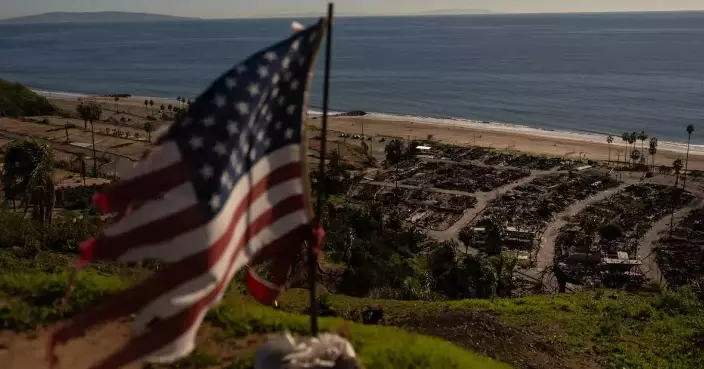
The top photos of the day by AP's photojournalists

What to expect from CES 2026, the annual show of all things tech?

AS Watson Marks 185 Years of Caring: Surpasses 10,000 Smiles for Children With Cleft Lips

US capture of Maduro divides a changed region, thrilling Trump's allies and threatening his foes

Luka Doncic scores 36 as Lakers rally past Grizzlies, 120-114

No. 1 Indiana starts post-Mendoza era by adding former TCU quarterback, new receiver, AP source says

Finland's battle against fake news starts in preschool classrooms

From Zero to Everywhere: VinFast Turned Electric Cars into Daily Life in the Philippines

Top photos from Week 18 of the NFL season

What to Stream: Kid Laroi, 'The Pitt' and 'Tron: Ares'

Trial begins for officer accused of failing to protect children during Uvalde school shooting

Gaw Capital Partners and GFH Partners Form JV to Develop UAE Industrial and Logistics Development Platform

Steelers, Panthers, Jaguars secure division titles. Broncos clinch AFC's No. 1 seed

Texans win 38-30 over Colts, clinch No. 5 seed in AFC playoffs

Antetokounmpo scores 37 in Bucks' 115-98 victory over Kings

Samsung Unveils World's First 130-Inch Micro RGB TV Featuring Next-Generation Color and Bold New Design

Rubio says US will press change in Venezuela with oil embargo, while Trump insists 'we're in charge'
China's first astronaut CAVES training concludes in mountainous area
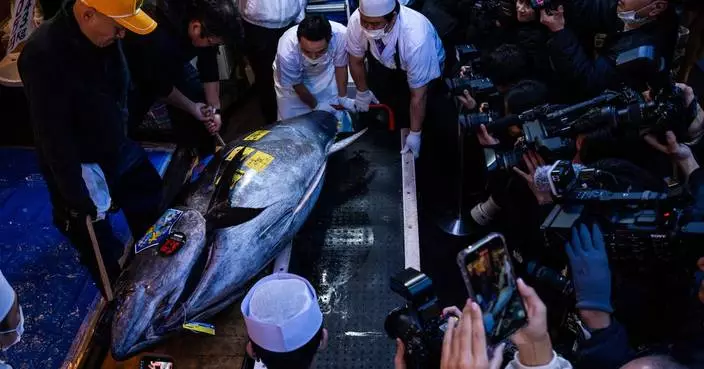
That's some pricey fish: A glimpse into Japan's New Year's tuna auction

Driving instructors teach students to dodge danger on Zimbabwe roads

Amorepacific Showcases Innovative Technologies at CES 2026
U.S. move against Venezuela sparks condemnation, concerns worldwide

Graham Ike scores 16 points as No. 7 Gonzaga routs Loyola Marymount 82-47

After Maduro, who's next? Trump spurs speculation about his plans for Greenland, Cuba and Colombia

Devin Booker hits a 3-pointer with 0.7 seconds left to lift Suns over NBA-best Thunder 108-105
Key business districts see growth in customer traffic, sales during New Year holiday
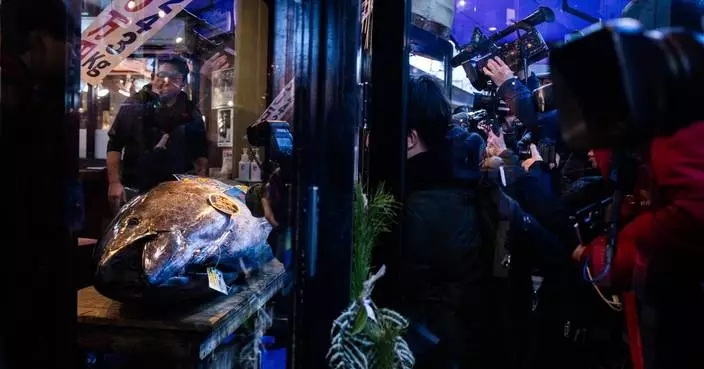
Bluefin tuna sells for record $3.2 million at year-opening auction at Tokyo fish market

Delcy Rodríguez becomes Venezuela's interim president after Maduro's ouster

Owner John Mara gets a game ball after Giants beat the Cowboys 34-17 in season finale

Hong Kong Flower Show 2026: Student Drawing Competition Open for Entries Until February 3
Chinese foreign minister holds strategic talks with visiting Pakistani counterpart

Dave Canales and the Panthers celebrate Falcons' win that gave Carolina the NFC South title

Falcons fire coach Raheem Morris, GM Terry Fontenot hours after finishing 8-9 season
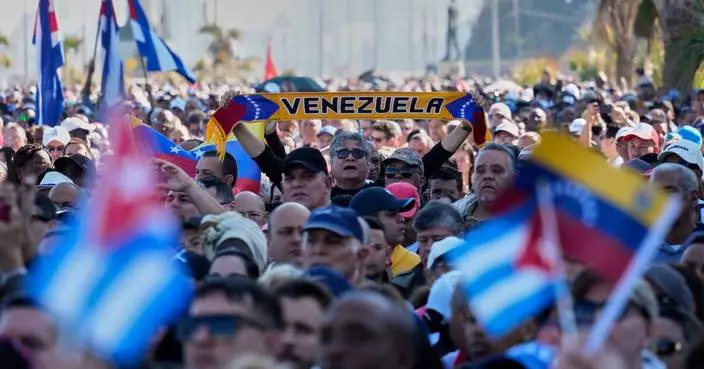
Cuba says 32 Cuban officers were killed in US operation in Venezuela

Stefon Diggs posts his 7th 1,000-yard season after week of legal trouble off the field

Polish Theatre Premieres Award-Winning Songs of Lear in Hong Kong This February
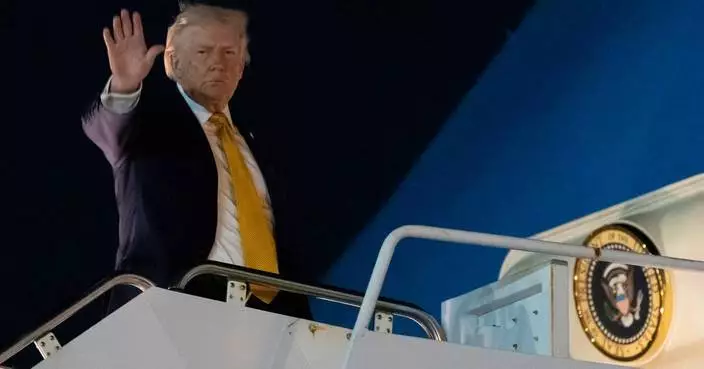
Trump says that Ukraine didn't target Putin residence in a drone strike as Kremlin claims

Myles Garrett breaks NFL single-season sack record with 23 and laments not getting 2 more
China's bulk commodity price index up for eight consecutive months

Bills celebrate home finale with 35-8 rout of the Jets in potential final game at Highmark Stadium

Falcons beat Saints 19-17 to hand division title to Panthers. Atlanta fires coach and GM hours later

Tyler Bertuzzi completes hat trick in OT in Blackhawks' 3-2 victory over Golden Knights

Lions beat playoff-bound Bears 19-16 on Bates' 42-yard field goal as time expires
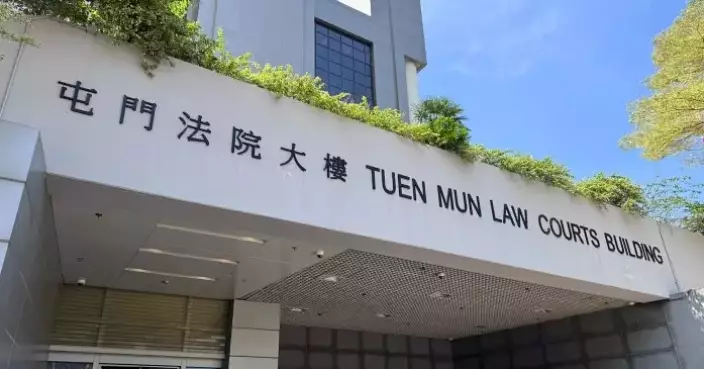
Co-owners fined $230,820 for ignoring removal order on unauthorized building structures in Yuen Long
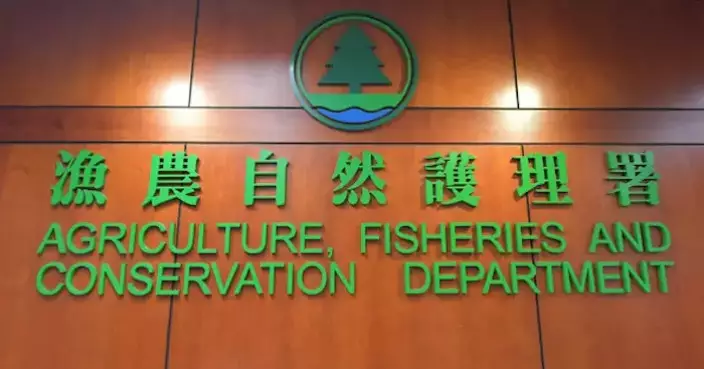
Hong Kong Launches Dog Vaccination Campaign at Fishing Ports to Combat Rabies

Hall has goal and assist as Hurricanes beat Devils 3-1 to snap 3-game losing streak
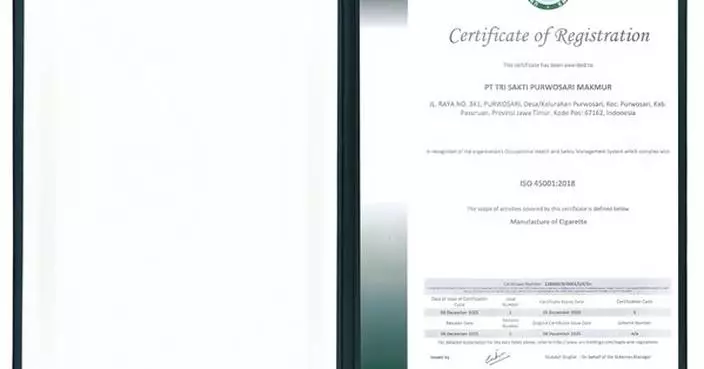
KT&G's Indonesian Factory Acquires 'ISO 45001' Certification

Bills fans brave snow, cold to celebrate final regular-season game at 53-year-old Highmark Stadium

Caleb Williams breaks Bears single-season passing record in loss to Lions
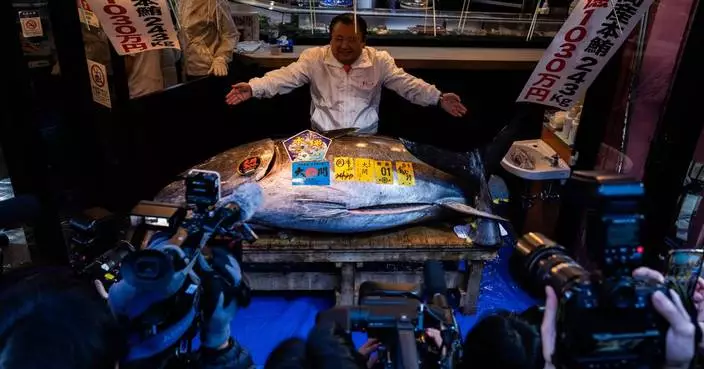
Photos show record-breaking $3.2M bluefin tuna sold at Tokyo's first fish auction of 2026

The Latest: Rubio suggests US won't run Venezuela day-to-day

Stafford throws 4 more touchdown passes, and Rams beat Cardinals 37-20 to secure No. 5 NFC seed

Eagles’ backup plan backfires with 24-17 loss to Commanders that costs them shot at NFC's No. 2 seed
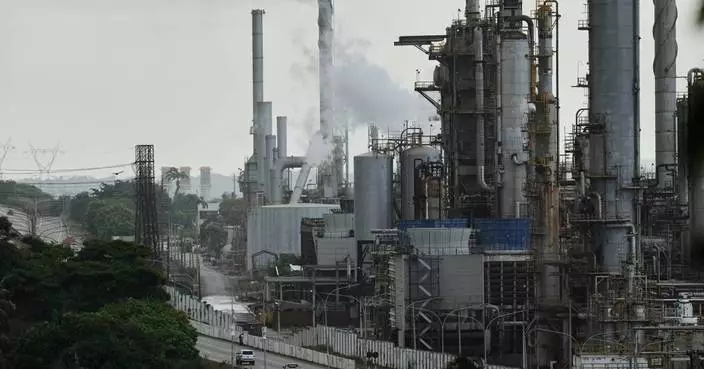
Trump's plan to seize and revitalize Venezuela's oil industry faces major hurdles
China always opposes imposing one country's will on another: foreign minister
Venezuelans queue for essentials following US attack as shortages loom

Daniel Carlson hits 60-yard field goal to lift Raiders over Chiefs, 14-12

Powell makes career-high nine 3-pointers as Heat beat Pelicans 125-106

Photos show people in Lebanon enjoying winter weather on the slopes
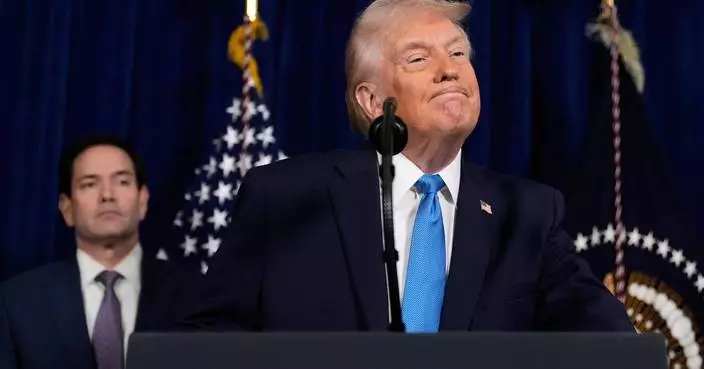
US intervention in Venezuela could test Trump's ability to hold GOP together in an election year


